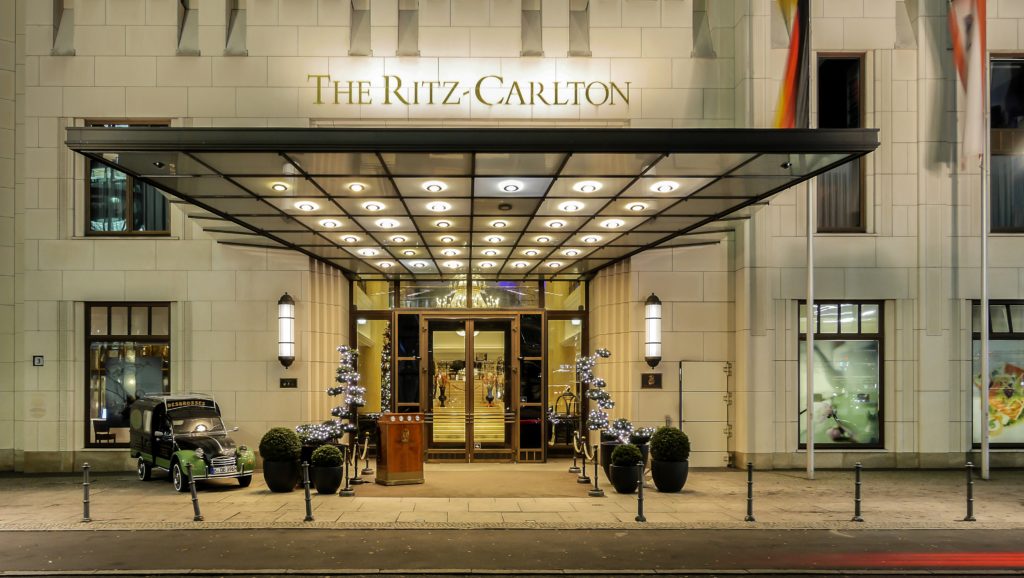The hotel’s hiring and employee retention philosophies have made it the leader in luxury it is today.
By Yvonne Milosevic
If there’s one takeaway from a stay at the Ritz-Carlton (we should all be so lucky), it’s that they sure know how to treat their guests. No surprise then that the Ritz-Carlton was the highest-scoring luxury hotel in J.D. Power’s guest satisfaction survey for the fifth consecutive year in 2019.
Significantly, the real secret behind that sterling service is rooted in the way the company treats its employees. And it’s an area to which some of us could give a little bit more of our attention. It doesn’t matter if you run a company or supervise a single department—you should consider adopting the Ritz-Carlton’s approach if having a loyal team is one of your end goals.
Create buy-in
In this interview with Chief Executive magazine, Ritz-Carlton co-founder Horst Schulze said that his initial impulse was not just to hire people, but to orient them to the brand’s unique way of thinking. When the Ritz-Carlton set out to establish itself as the ultimate high-end hotel in 1983, Schulze invited people to help forge the company from the ground up. “When I hired people I said, ‘Join me, don’t come to work here. Join me to create the finest hotel company in the world’.”
Without a doubt, the Ritz-Carlton caters to an elite clientele. But those who work there have a unique self-identity. On Day One, Schulze told employees, “We are not servants. We are ladies and gentlemen serving ladies and gentlemen.” This sentiment is still the official motto of the company today.
Target the ideal candidate
The secret to finding the perfect candidates for a position, said Mike King, director of sales and marketing at the Ritz-Carlton’s Amelia Island property, is to “Hire for purpose, don’t hire for function. Right below you, that chair you’re sitting on is doing a job. It has a function.”
“Don’t hire for function, don’t hire for somebody to be a teller at a bank — hire somebody that can interact with those bank guests and really fulfill the purpose, which is to create these great relationships. For us, we hire for a purpose, which is creating luxury experiences.”

Empower employees
The hospitality industry is infamous for its high turnover rates. Indeed, the Bureau of Labor Statistics estimates it’s around 73.8% annually in the hotel and motel industry. The Ritz-Carlton, meanwhile, averages an employee turnover rate of just 20%.
You can’t have excellent customer engagement without having passionate advocates who work with you, said Valori Borland, Practice Director at The Ritz-Carlton Leadership Center, speaking at a Baldrige Quest for Excellence conference. The secret, she explained, is that the Ritz-Carlton invests in the growth and development of its staff. “We want to inspire [employees] each and every day.”
Schulze echoed that idea. He called turnover at the Ritz-Carlton incredibly low but said it wasn’t higher wages that kept staff happy. “We didn’t pay more, but we respected employees,” he noted. In essence, he said, “We made them part of the thinking of the organization.”
The 12 commandments
The Ritz-Carlton has something called the Twelve Service Values, which remind employees that genuine hospitality comes from committed staffers who perform their tasks with passion and pride.
Those values include statements such as, “I have the opportunity to continuously learn and grow”; “I continuously seek opportunities to innovate and improve The Ritz-Carlton experience,”; and, “I own and immediately resolve guest problems.”
Here’s just one example of the extraordinary autonomy and support Ritz-Carlton staff have: the company empowers every single employee to use up to $2,000—and their good judgment—to resolve a guest issue. There’s no passing the buck to a manager to find a solution.
The “Gold Standards” can be applied to any business
Steve Jobs loved to say, “Good artists copy; great artists steal.” As Carmine Gallo’s piece in Forbes points out, the Apple Store has adopted several Ritz-Carlton customer service techniques, which have served the brand well over the years.
When asked how to apply the Ritz-Carlton gold standards to non-customer facing businesses, Schulze doesn’t mince words. “Everybody has to be customer-focused,” he explained. “There’s no business that talks to another business. My mattresses don’t talk to another mattress. It’s human beings.” Therefore, whomever you talk to makes a decision about your business based on the interactions you have with them.
Make sure every employee knows that their real objective is working to convince the guest or customer to come back, Schulze added. If you walked into the hotel kitchen and asked the pot washer, “Excuse me. What is your objective here?” He would tell you, “I’m here to convince the guests to want to come back.”



